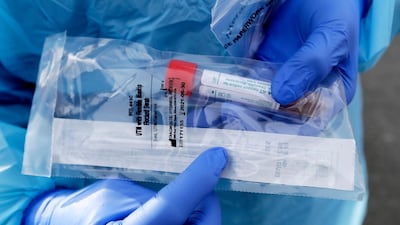Scientists at Oxford University have created a rapid coronavirus testing kit cutting result wait times to just 30 minutes.
The team, led by Prof Zhanfeng Cui and Prof Wei Huang, have been working to improve test capabilities as the virus spreads internationally.
It comes as the UK vowed to ramp up its testing to 25,000 a day.
The rapid testing technology has been developed by scientists from the University of Oxford’s Engineering Science Department and the Oxford Suzhou Centre for Advanced Research (OSCAR).
The research team has developed a new test, based on a technique which is capable of giving results in just half an hour – over three times faster than the current method. Previous tests took up to two hours to give a result.
Prof Wei Huang said: ‘"The beauty of this new test lies in the design of the viral detection that can specifically recognise SARS-CoV-2 (COVID-19) RNA and RNA fragments.
"The test has built-in checks to prevent false positives or negatives and the results have been highly accurate."
Additionally, the technology is very sensitive and it is hoped that patients in the early stages of infection may be identified sooner, potentially helping to reduce the spread.
The technology will provide results which can be read immediately which will help rural areas and enable testing to take place in community healthcare centres.
The Oxford scientists are now working to develop an integrated device so that the test can be used at clinics, airports and for home use.


